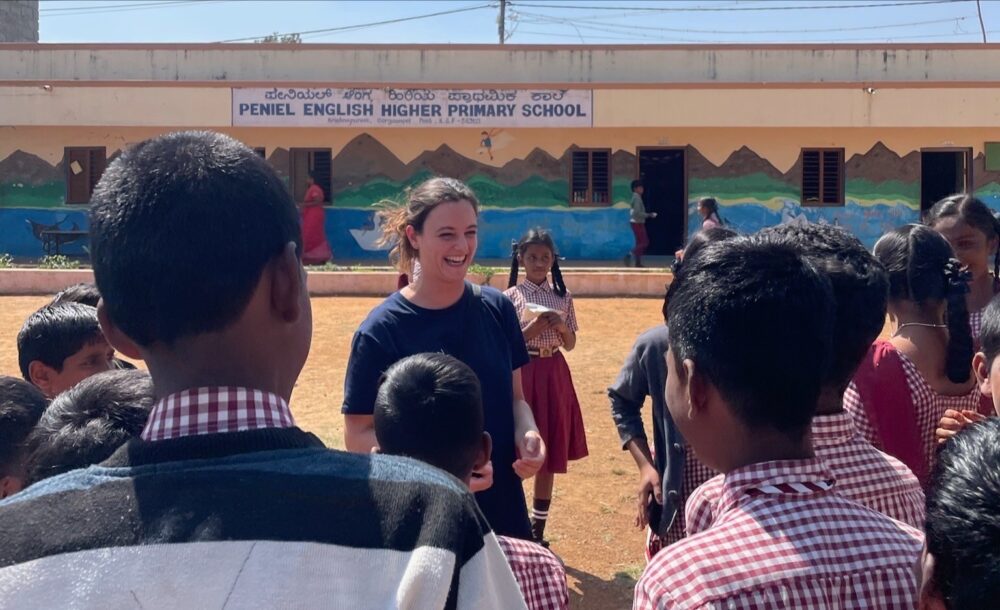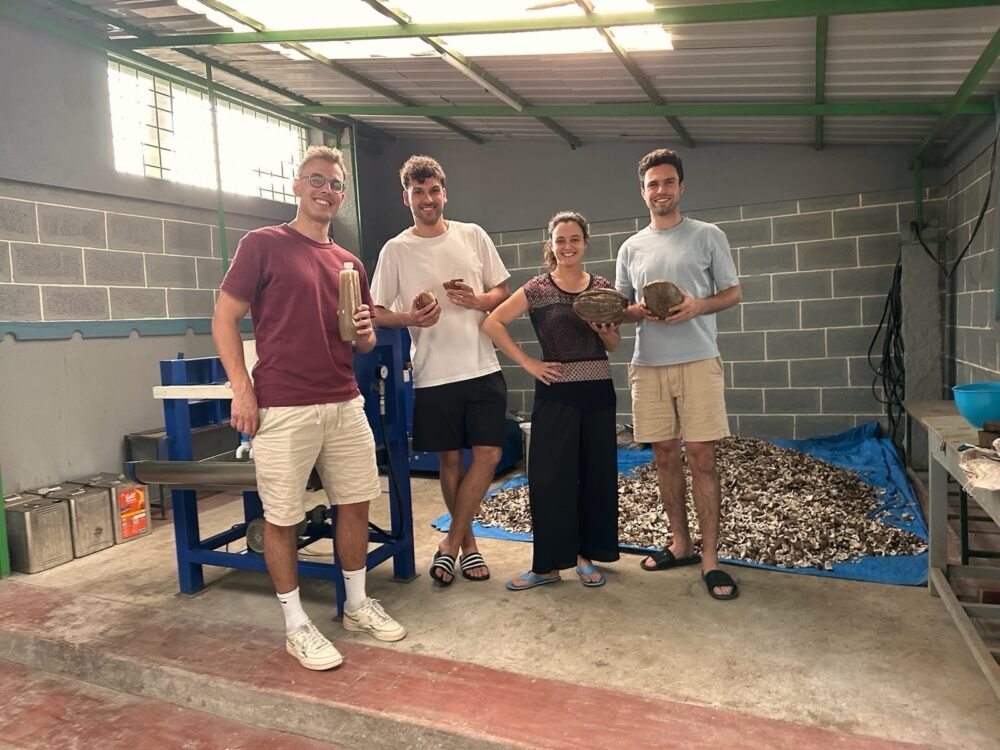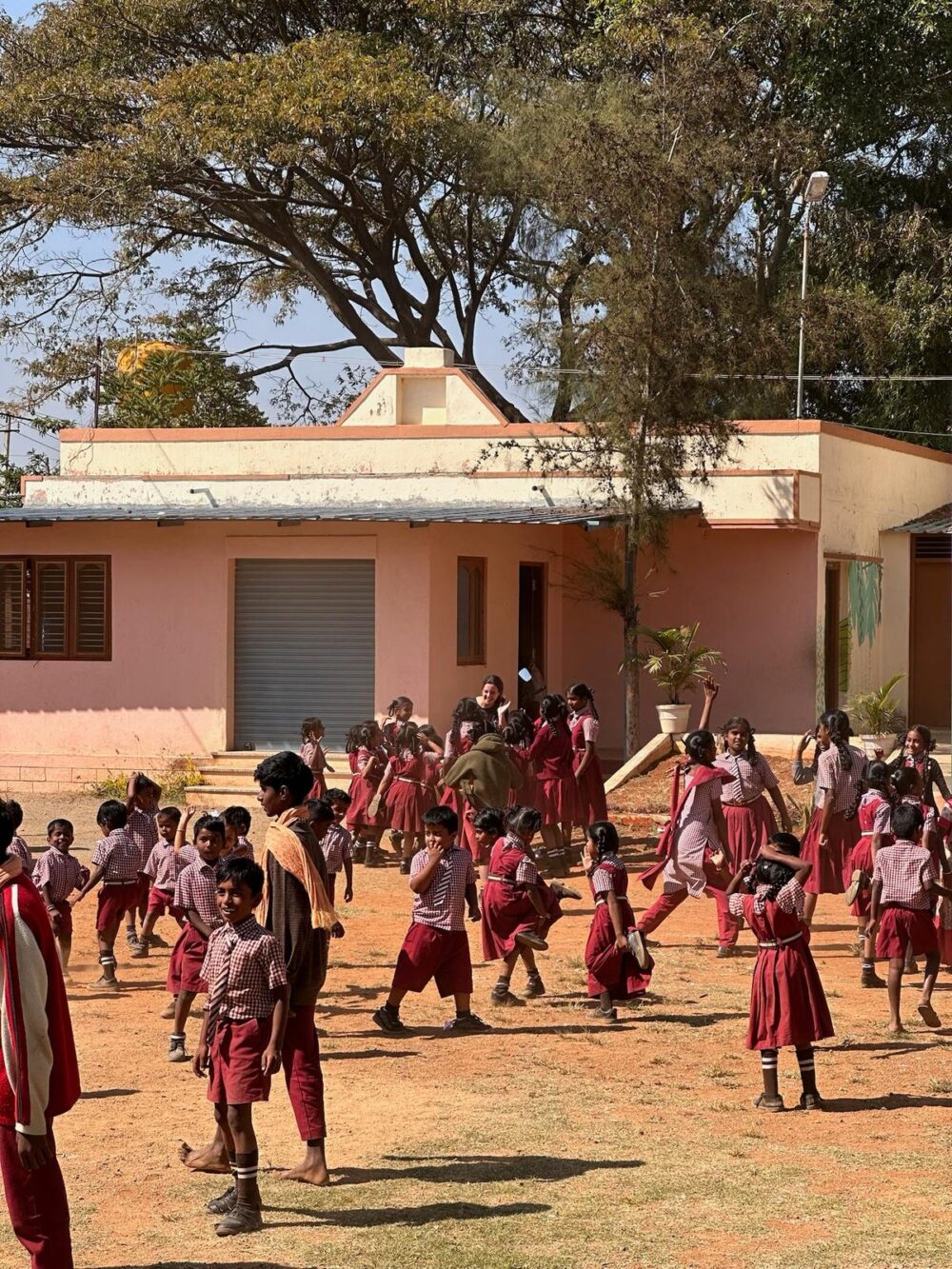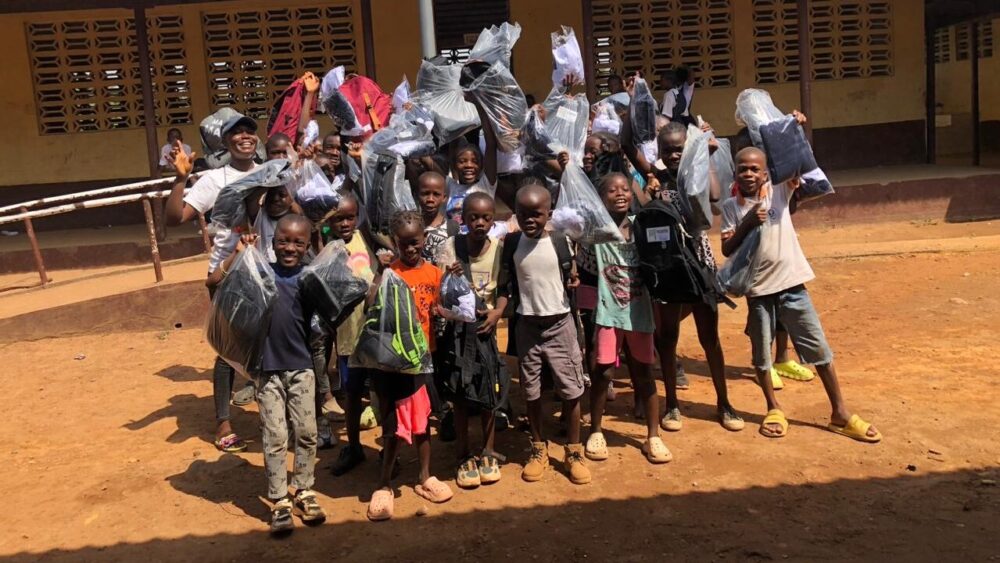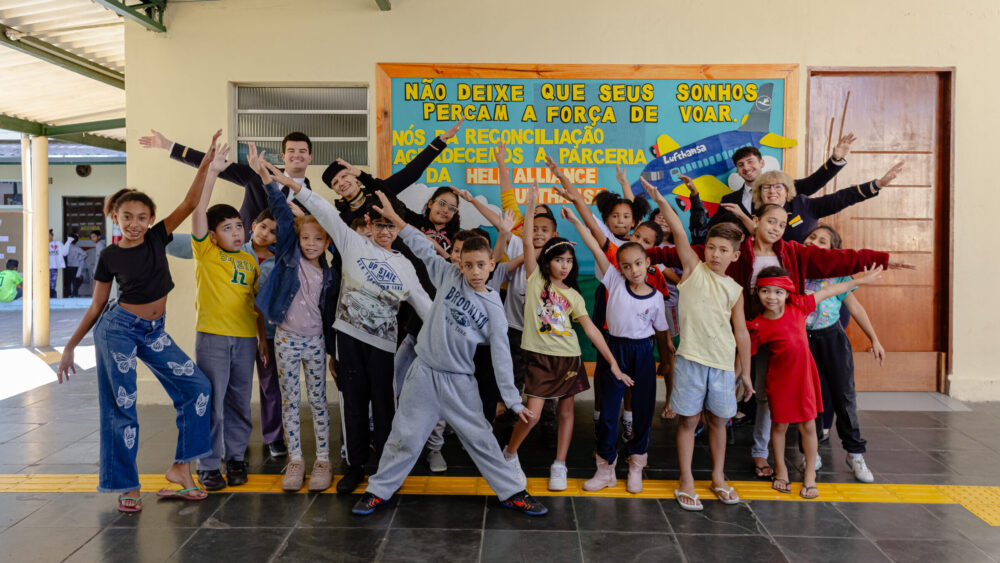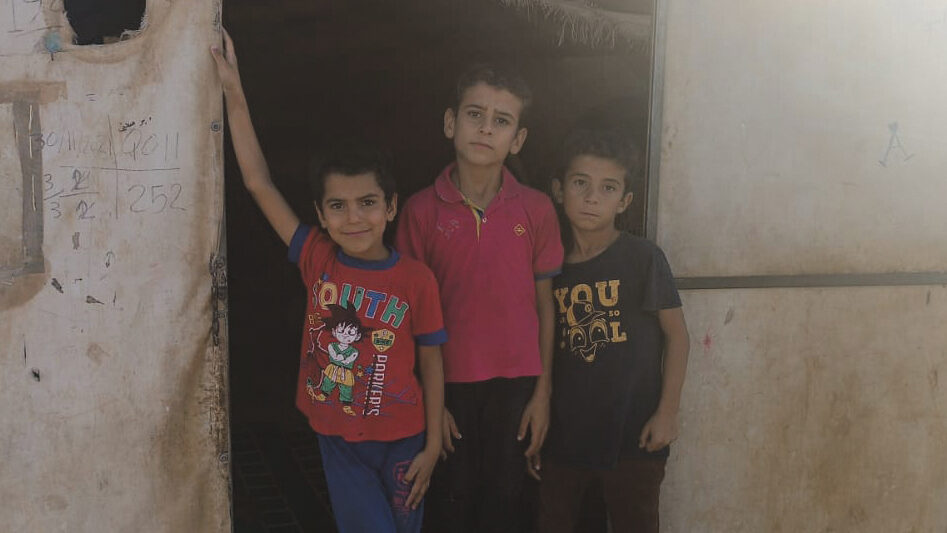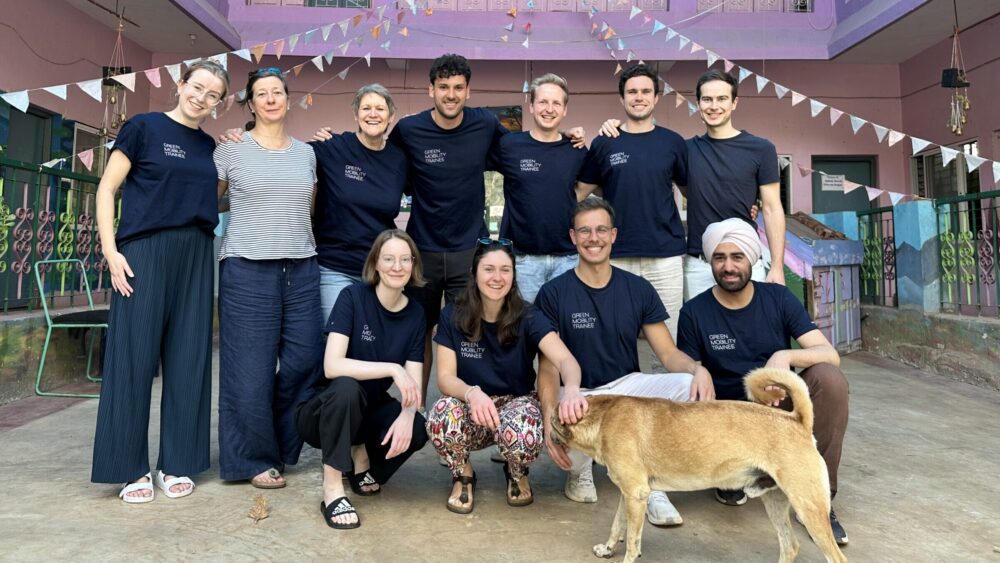
Interview: Trainee assignment in India
The Green Mobility trainees of the Lufthansa Group completed the social assignment of their trainee program in the help alliance project “Wholistic school, Krishnapuram” in India. In addition to the school and a children’s home, the local project partner has a coconut and vegetable farm, which generates local income that covers the operating costs of the school and the children’s home.
The trainees have taken on the challenge of supporting the local partner in generating these operating costs themselves in the long term. We spoke to them about their project assignment and their learning experiences on site.
How did your project work out and which focus did you set?
Trainees: Our social project had two key components. We collaborated with the local organization to support their growing coconut business. We focused on improving the sale of coconut oil and its by-products in order to create a stable source of income. This should help the organization to become financially independent and make investments in the facilities that benefit the children.
Additionally, we leveraged our group’s technical expertise to explore the implementation of solar energy at their facilities, as frequent power outages significantly impact daily life and educational opportunities at the local school. We worked closely with the local team to develop solutions that not only make economic and environmental sense, but more importantly have a positive impact on the children and their development.
What were you able to achieve during your time on site and how does the local community benefit from the project?
Trainees: We created a business plan to support the local organization to sell their organic coconut oil on the Indian market. We directly implemented this business plan by initiating organic certification and developing a logo, suitable packaging and a branding concept.
We also used our technical knowledge to calculate how much electricity would be needed on a daily basis and what kind of solar supply could reliably meet the demand. Thanks to these preparatory calculations, including a financing concept, the local organization can now purchase a photovoltaic system that enables the children to have uninterrupted lessons.
Our project also helps to strengthen the local community. Selling coconut oil and its byproducts at fair prices in local markets not only creates an additional source of income but also improves access to food and other fairly traded products for the entire community.
What were the biggest challenges you faced during your time on site?
Trainees: Communication was not always easy. Since Tamil, Telugu and Kannada are spoken here and many children only speak one or two of these languages, we couldn’t get any further with English. This meant that we had to rely more on gestures, facial expressions and creative ways to get our message across.
And then there was time, which is viewed a little differently there. Schedules were much more flexible, things often took longer and last minute changes were part of the process. This was frustrating at first, but eventually we learned to let go of rigid expectations and adopt a more adaptable mindset.
Were you able to develop skills during your assignment that will be useful in your professional career?
Trainees: During our time here, we learned to adapt flexibly to sudden changing conditions.
Another important aspect was adapting to cultural differences. We explored alternative ways of working and consciously questioned familiar patterns. Instead of sticking to rigid structures, we realized that there are many ways to achieve a goal – a valuable skill, especially in an international context where diversity and different perspectives play a crucial role.
What has been the most rewarding part of your work here?
Trainees: The most rewarding part of our work was building relationships with the children and seeing their educational progress. Through daily interactions with them, as well as with Jeanette and Dorothee, we got to experience South Indian culture, its people, and its incredible food in a very personal way.
We were deeply touched by the gratitude and warmth of both the children and the local team, making us feel truly welcome. As a group, we also grew closer – not just as colleagues, but as friends.
Most of all, it was fulfilling to see how we could apply our knowledge in sustainable business development to make a real, positive impact on a project that puts children first and works to improve their local community.

